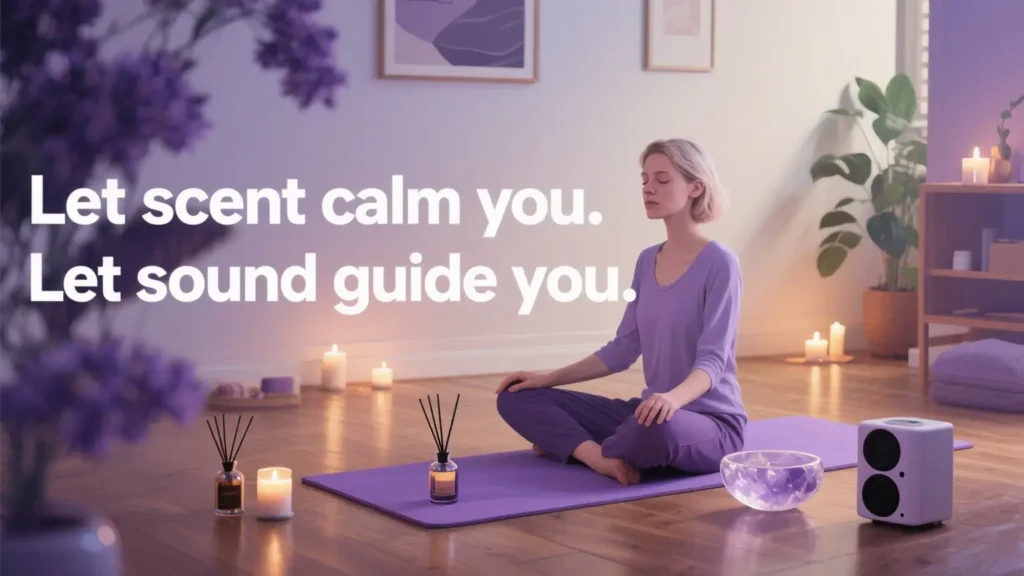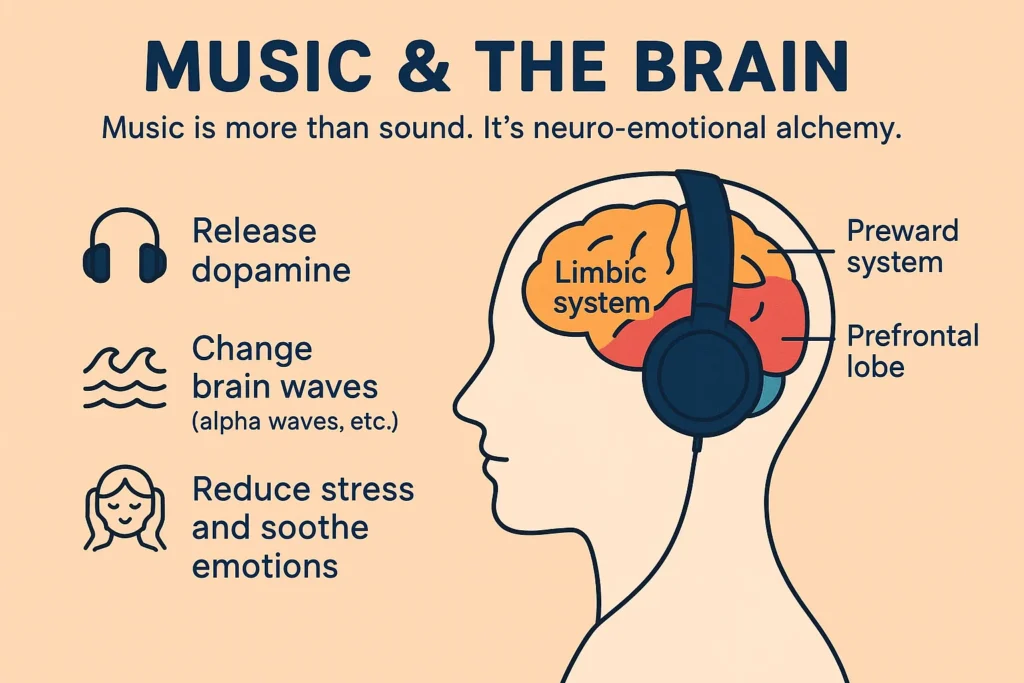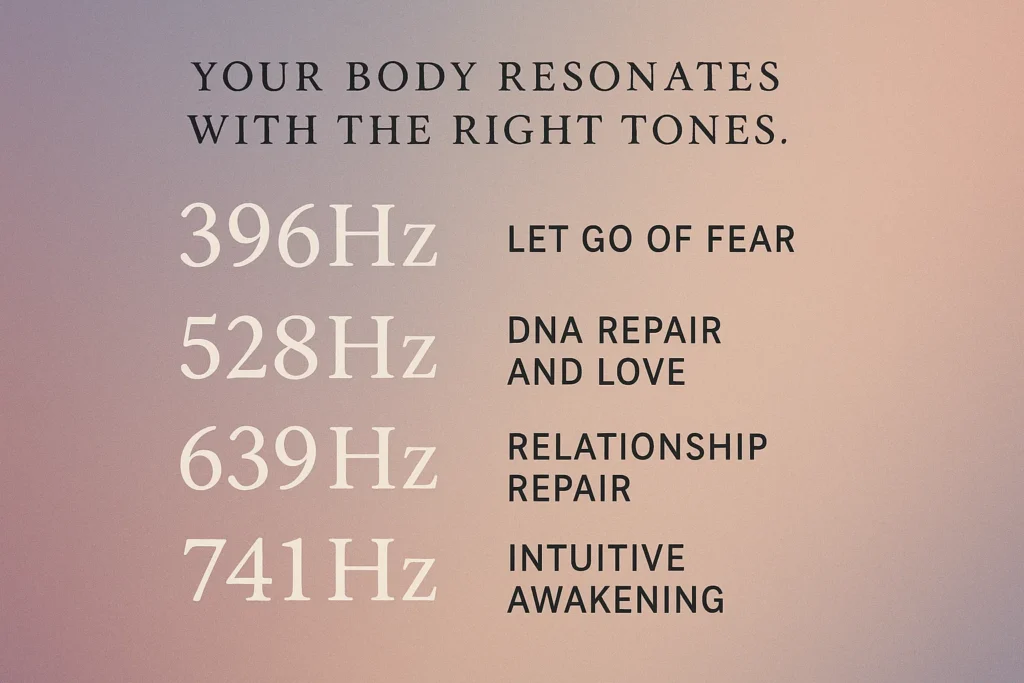In the world of today, which is both too active and overstimulated, people are always looking for a peaceful, hazy, and comfortable corner to make themselves at home. While traditional medicine still acts as the primary means of health care for most people, many are increasingly interested in complementary and alternative health care approaches without the need for a prescription pad to address their emotional and mental health issues. Music and aroma-based practices are afar from such and are becoming the best bet for many to make their inner world more peaceful, harmonious, and healthy.
Whether people feel the calming notes of a piano melody or think of the relaxing scent of lavender, the experiences they receive through their ears and nose can cause a significant alteration in their psychological dimensions. This article showcases the healing strength of music and scents, the essence of their function in our nervous systems, and ways of adopting them for emotional stability and stress reduction in everyday life.

The Science Behind Music Therapy and Aromatherapy
How Music Affects the Brain and Emotions
Music has been seen as a clear source of entertainment as well as a real brain boosting activity. It has been observed that music activities have their focus on the whole brain of a person. There are pieces of evidence provided by neuroimaging suggesting that music gives the same brain pleasure spots as eating, having sex, and taking drugs. When music is used as a tool to communicate with your brain at the emotional level, dopamine is released that brings happiness and the feeling of being rewarded in your mind.
Bits of sound with a certain frequency and the way they flow can influence the activity of brain waves. Suppose the brain is given a cue to a calm state. For instance, low beats can affect the human-brain in a certain way leading to slower frequencies, a condition that calls for relaxation or meditation (alpha brainwave). So, the fact that slow, calming music, tracks that repeat softly in the background, or specific frequencies such as the one that vibrates at 528Hz, are usually chosen to be played through the sound healing process is justifiable.
Scientific investigations have indicated that music therapy has a positive impact on cognitive abilities, relieves anxiety and might also remedy depression patterns. In hospitals, people employ this method in its stage of surgical recovery and the area of pain treatment. Those struggling with trauma, PTSD or the regular hustle and bustle, music becomes an option that does the job of emotional liberation without the fear of drilling in emotionally or physically, it is easy for them to cope with their sorrows by listening to music.
Aromatherapy: Healing Through the Skin
One similarity that music and aroma do the same way is the fact that both operate through paths that lead directly to our brains. This means that they both can serve as natural remedies that act upon our mind even without us being aware of that reality. When the essential oils are inhaled, olfactory molecules penetrate our nasal passages and then reach the limbic system which is the part of the brain responsible for regulation of memory and emotions. Through this pathway, the volatile components of essential oil interact with our olfactory system leading to an emotional reaction and a desire to revisit this very pleasant experience in the future.
Some oils, commonly known to be fragrant, like lavender, chamomile, and ylang-ylang, are still famous for their soothing effect, while others such as peppermint and eucalyptus still give the users a refreshing feeling. The mix of music and aroma’s newfound power tells us that both these healing methods are exclusively designed for the purpose of inner transformation without the need for physical involvement.
Do you know that the scientific community backed the scent industry and has been for some time? Yes, they have adopted aromatherapy as the most effective technique in the treatment of various diseases. Here are some of the scientific findings confirming the legitimacy of aromatherapy:
- Using lavender oil: By means of experimentation, it has been demonstrated that the application of lavender essential oil is substantially capable of lowering the cortisol level in the human body leading to better the endocrine system, especially for stress relief and producing the anti-stress hormone and the relaxation one.
- Bergamot oil: Administration of Bergamot essential oil through different ways like steam inhalation, warm or cool mist diffusers, vaporization, oils, lotions, or aroma sprays was the method used to reduce the symptoms of anxiety thus depression and stress.
- Mindfulness During Meditation: The study suggests that the same brain receptors get activated during meditation as they do after consuming alcohol or drugs but meditation does in response to the need to concentrate.
All these are not fictions but real events that happened to several patients in experiments in USA health centers and even in other global health canters where evidence-based integrative medical practices are common.
Popular Tools and Techniques to Try at Home
No need to worry about being a specialist music therapist or having a wellness retreat center membership that will allow you to have access to those treatments which you would otherwise have to go out of your way to seek. We can all love to be a bit frugal, so when creating our homes, it may become an

Music Therapy Activities
- Morning Tracks: Kick off your day with tunes that are either invigorating or soothing. Custom playlists targeting concentration or good vibes can be found on platforms like Spotify or YouTube.
- Sound Cleansing Rituals: It is a process where a person gets subjected to elongated tones produced from instruments like crystal bowls, gongs, or Tibetan singing bowls. The tones that are generated are the theta brainwaves which intensify your creativity and insight.
- Frequency-Governed Listening: Check out the healing solfeggio frequencies namely 528Hz (associated with healing) or 396Hz (linked with letting go of fear and guilt).
- Emotional Lists Collected by Yourself: Create playlists based on different emotions: one for when you are feeling sad, one for when you need to be energetic and one just for thinking. Stop using music as a background noise only, and let it be a tool for emotional processing.
Aromatherapy Practices
- Essential Oil Diffusers: Purchase an ultrasonic diffuser to softly diffuse healing aromas around your surroundings. You might want to try out scent combinations such as lavender + cedarwood for a good night’s sleep, citrus + peppermint for alertness, etc.
- Aromatherapy Baths: Few droplets of essential oils in bathwater will help in relaxation of the whole body. For instance, Epsom salt along with lavender oil may make this relaxing act more enjoyable and soothing.
- On-the-Go Solutions: Roll-on blends and inhaler sticks are convenient items to have in your handbag so that you can get an instant relief selling your nervousness, or changing your bad mood, at any place and time.
- Scent and Memory Anchoring: While writing in your diary, meditating, or engaging in a breathing exercise, the use of definite odors will help in bolstering your memory of the experience. The idea here is that the next time you smell the scent, you will automatically start feeling calm and clear.
Making use of both sound and smell in conjunction can result in a powerful effect on the mind. Picture yourself meditating with some light ambient melodies in the background, while the smell of sandalwood sweeps past—this is an all-inclusive sensory adventure of peace.
Emotional Healing: Real Stories, Real Results
When people tell in their own words how their lives have been transformed, it is impossible to doubt the reality of their experiences. The stories can be highly motivating and inspiring, just the same way that music and scents can evoke powerful, life-enhancing memories.
Sarah’s Story: From Burnout to Balance
Sarah, a 29-year-old marketing executive, was in the midst of a severe professional burnout that resulted in chronic anxiety, which, in turn, led to sleep disorder. After introducing a ritual of watching calming piano live end-of-day music and merely turning on the lavender diffuser an hour before sleeping not long ago, Her sleep troubles became a thing of the past and her anxiety was gone.
David, who was recuperating from a loss, started attending the group sound baths. The vibrations enabled him to get in touch with his feelings and therefore he felt more connected to his inner world than ever before. He gradually incorporated the use of frankincense as part of aromatherapy during meditation to make the effect even more profound.
Tanya’s Use of Scent Memory in Her Therapy to Leave the Other Side of PTSD
Tanya, a PTSD survival story, used rose and neroli essential oils while undergoing EMDR therapy. By smelling these oils, she remained anchored and focused in her otherwise intense confrontation of emotions. Today the oils are a reminder of those good old days and a source of comfort for her during anxiety attacks.
The two stories presented can clearly demonstrate that music and scents have a big role to play not only in provoking emotions but they actually interact with them, becoming agents of positive transformation and confirmation in our lives.
Why This Is Relevant in Today’s World
People in today’s world typically live hyper-technological and thus, be beep, ho hum type of life. Our senses are most of the time neglected in the whirl of digital information. The improved use of sound and scent in our daily activities is a good starting point for the reconnection.
- The stress of working from home: Music and scents are put to use to indicate separate phases – in and outside working hours.
- Challenges in terms of mental health: By the use of these tools emotions are gently managed non-verbally.
- Conscious way of life: They become a crucial part that makes well-being whole by verifying it themselves.
Today, a lot of people are involving themselves in rituals that give them vital strength in body and soul. The inclusion of the healing qualities of music and scents establishes a balance for the human body and mind.
The Beginning of Your Recovery Path
Here are a few ideas to start with that can lead to the achievement of your goal of becoming a naturally healthy person:
Essential Music Tools:
- Bluetooth speaker or noise-cancelling headphones
- Curated playlists for different moods
- Available platforms Easy to use derectly to reach healing frequencies Example: Insight Timer, Calm, YouTube
Essential Scent Tools:
- A high-quality diffuser
- Some essentials like: lavender, olive, lemon, franincense, rose
- Non-toxic scented candles (make sure they are made with non-toxic ingredients)
Combined Ritual Ideas:
- Morning energy ritual: Citrus oil + upbeat lo-fi music
- Work focus session: Peppermint oil + alpha wave music
- Evening wind-down: Lavender oil + ambient piano
- Deep rest: Frankincense + binaural beats
The above things in combination also assist in changing the environment to a more positive one, which eventually promotes healing and calm.

Final Thoughts: Trust Your Senses
Our senses are our first copy to healing. When you are out of words in the face of stress or feel helpless, the scents and sounds of music are present to assist. They do not require any analysis or effort—simplicity: only presence. Getting to know the healing power of music through scents is more about the basics: listening, breathing, and feeling.
Music or Perfumes? Whether that’s infusing relaxation, seeking emotional clarity, or purely desiring additional beauty in your life, it’s Just surely kicks off with a song and a scent…you choose your own path!